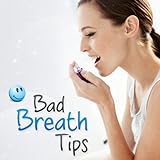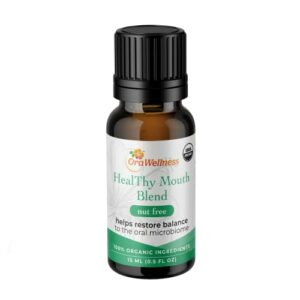In our step-by-step guide, we will explore how to incorporate dry mouth remedies into your daily routine. We understand the challenges and discomfort that come with dry mouth, and our guide aims to provide practical solutions to alleviate these symptoms. Whether you’re dealing with medication side effects or other causes of dry mouth, our guide will help you find effective remedies and make them a seamless part of your everyday life.
Relief for Uncomfortable Dry Mouth
Understanding Dry Mouth
Dry mouth, also known as xerostomia, refers to a condition where there is an inadequate production of saliva in the mouth. It can be caused by various factors, including certain medications, medical conditions, smoking, and dehydration. The impact of dry mouth on daily life can be significant, as it can lead to difficulties in speaking, chewing, swallowing, and even tasting food. It can also contribute to bad breath and an increased risk of dental problems such as tooth decay and gum disease.
Consulting a Healthcare Professional
- Seeking advice from a healthcare professional is crucial in determining the underlying cause of dry mouth. They possess the knowledge and expertise to accurately diagnose the condition and provide appropriate treatment options.
- A healthcare professional will conduct a thorough assessment, taking into consideration your medical history, lifestyle factors, and any medications you may be taking, to identify the root cause of your dry mouth.
- Consulting a healthcare professional is essential as they can rule out any serious underlying health conditions that may be causing dry mouth, such as diabetes, autoimmune disorders, or medication side effects.
- By seeking advice from a healthcare professional, you can receive personalized recommendations and guidance on managing and treating your dry mouth symptoms, improving your overall oral health and quality of life.
Identifying Dry Mouth Remedies
To identify dry mouth remedies, we recommend trying the following:
- Drink water frequently throughout the day to stay hydrated.
- Use sugar-free gum or lozenges to stimulate saliva production.
- Avoid alcohol and tobacco, as they can further dry out the mouth.
Creating a Daily Routine
To incorporate dry mouth remedies into your daily routine, follow these simple steps:
- Drink plenty of water throughout the day. Hydration is key to combating dry mouth. Make it a habit to sip water regularly and keep a water bottle with you at all times.
- Use a mouth rinse specifically designed for dry mouth. Rinse your mouth with the recommended amount of the product, usually after meals or as directed by the manufacturer. This will help moisturize your mouth and provide temporary relief.
- Chew sugar-free gum or suck on sugar-free lozenges. This stimulates saliva production and helps alleviate dryness. Have these handy, especially after meals or whenever your mouth feels particularly dry.
- Avoid caffeine and alcohol as they can dehydrate your body and worsen dry mouth symptoms. Opt for water or herbal teas instead.
- Maintain good oral hygiene by brushing your teeth and tongue at least twice a day with fluoride toothpaste. This will help remove bacteria and keep your mouth fresh and moisturized.
- Consider using a humidifier in your bedroom while you sleep. This adds moisture to the air and can help alleviate dry mouth symptoms during the night.
Remember, consistency and regularity are key in incorporating dry mouth remedies into your daily routine. By making these simple changes, you can effectively manage your dry mouth and improve your overall oral health.
Hydration Tips
To stay hydrated throughout the day, carry a water bottle with you at all times. This will serve as a constant reminder to drink water whenever you feel thirsty. Additionally, set reminders on your phone or computer to drink water at regular intervals, such as every hour or two. By following these simple tips, you can ensure that you are consistently hydrated throughout the day.
Oral Care Practices
To maintain good oral hygiene, start by brushing your teeth and tongue twice a day using a soft-bristled toothbrush. Use fluoride toothpaste to help prevent tooth decay and strengthen your tooth enamel. If you suffer from dry mouth, consider using mouth rinses specifically formulated for this condition, as they can help moisturize and protect your oral tissues. Remember to follow these practices consistently for a healthy and clean mouth.
Choosing Moisturizing Products
Recommend moisturizing products such as saliva substitutes or oral sprays for individuals seeking relief from dryness. To select the most suitable option, consider factors such as ingredients, effectiveness, and any specific needs or sensitivities. Read product labels carefully, compare options, and consult with a healthcare professional if necessary. Remember to prioritize your comfort and well-being when making your final choice.
Dietary Considerations
To alleviate dry mouth symptoms, we suggest making dietary modifications. Consume hydrating foods such as fruits, vegetables, and soups to increase saliva production. Avoid salty or spicy foods as they can further contribute to dryness. Keep a water bottle handy and sip water throughout the day to stay hydrated.
Tracking Progress and Seeking Further Assistance
To ensure effective management of dry mouth symptoms, it is important for readers to keep a record of their symptoms and track their progress over time. We encourage you to note down the severity and frequency of your dry mouth symptoms, as well as any changes you observe while trying different remedies. If the remedies do not provide sufficient relief or if your symptoms worsen, we advise you to consult your healthcare professional for further assistance. They will be able to assess your condition and provide appropriate guidance and treatment options.
Improving Comfort and Well-being
In conclusion, we have explored the various ways to incorporate dry mouth remedies into our daily routine. From staying hydrated to using moisturizing products, these simple steps can make a significant difference in alleviating the discomfort caused by dry mouth. By consistently practicing these remedies, we can improve our overall comfort and enhance our quality of life. Remember, small changes in our daily routine can have a big impact on our well-being. So let’s take care of our oral health and make dry mouth a thing of the past!
Helpful solutions for dry mouth
Tips and Tricks for Finding Relief
- Stay hydrated: Drinking plenty of water throughout the day can help keep your mouth moisturized and alleviate dryness
- Avoid caffeine and alcohol: These substances can contribute to dehydration and worsen dry mouth symptoms. It’s best to limit or avoid them
- Use sugar-free gum or lozenges: Chewing sugar-free gum or sucking on sugar-free lozenges can stimulate saliva production and provide temporary relief
- Moisturize your lips: Applying a lip balm or moisturizer can prevent your lips from drying out and help alleviate discomfort
- Avoid tobacco and spicy foods: Both tobacco and spicy foods can irritate the mouth and exacerbate dry mouth symptoms. It’s advisable to avoid them
Finding Relief for Dry Mouth
Are you looking for natural remedies or over-the-counter products?
We understand that you may be looking for options to address your needs. When it comes to natural remedies, they are often sought after for their potential benefits and minimal side effects. On the other hand, over-the-counter products can offer convenience and a wide range of options. It ultimately depends on your personal preferences, specific condition, and the advice of a healthcare professional. We suggest exploring both options and consulting with a healthcare provider to determine the most suitable approach for you.
Are you looking for long-term solutions or temporary relief for your dry mouth?
We understand that dealing with dry mouth can be quite uncomfortable and frustrating. When it comes to finding solutions, it’s important to consider both long-term and temporary options. Long-term solutions aim to address the underlying causes of dry mouth and provide lasting relief. These may include lifestyle changes, such as staying hydrated, avoiding tobacco and alcohol, and managing any underlying health conditions. Additionally, there are medications and oral products available that can stimulate saliva production. On the other hand, temporary relief options can help alleviate dry mouth symptoms in the short term. These may include drinking water frequently, using over-the-counter saliva substitutes, chewing sugar-free gum or sucking on sugar-free candies to stimulate saliva flow. Ultimately, the choice between long-term solutions and temporary relief depends on your specific needs and preferences. We recommend discussing your situation with a healthcare professional who can provide personalized advice and guidance.
Have you tried any remedies for dry mouth before?
Yes, we have tried various remedies for dry mouth before. Dry mouth, also known as xerostomia, can be a discomforting condition that can be caused by various factors such as medication side effects, dehydration, or certain medical conditions. To alleviate dry mouth, we have experimented with different approaches. Some common remedies include drinking plenty of water, avoiding caffeine and alcohol, chewing sugar-free gum or sucking on sugar-free candies to stimulate saliva production, using saliva substitutes or oral moisturizers, and practicing good oral hygiene. Additionally, we have found relief by using a humidifier in our sleeping environment and breathing through our nose to reduce mouth breathing. However, it is important to note that the effectiveness of these remedies may vary depending on the underlying cause of dry mouth. If dry mouth persists or becomes a chronic issue, it is advisable to consult a healthcare professional for further evaluation and guidance.
Are you experiencing any other symptoms concurrent with your dry mouth?
No, we are not experiencing any other symptoms concurrent with our dry mouth. We understand that having a dry mouth can be uncomfortable, and we sympathize with any discomfort you may be feeling. If you have any concerns or would like further assistance, please let us know. We are here to help.
Have you considered using a humidifier to add moisture to the air and help with dry mouth symptoms?
Yes, we have considered using a humidifier to add moisture to the air and help with dry mouth symptoms. A humidifier can be a useful tool in increasing the humidity levels in a room, which can alleviate dryness and provide relief for dry mouth. By releasing water vapor into the air, a humidifier can help prevent excessive dryness that may contribute to dry mouth symptoms. However, it’s important to consult with a healthcare professional before using a humidifier, as they can provide personalized advice based on your specific situation and needs.














